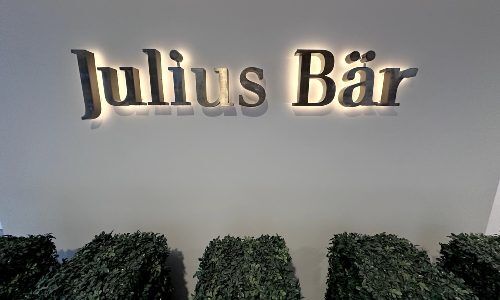Julius Baer still has not found a new CEO. The difficulties are setting back the Zurich-based traditional bank in dealing with its legacy issues, according to finews.ch editor-in-chief Dominik Buholzer.
A board of directors does well to always have a Plan B – even for the CEO position.
This has nothing to do with mistrust but with entrepreneurial foresight. The operational chief can suddenly become unavailable due to health reasons. Or, as in the case of Julius Baer, may need to resign. On January 31 of this year, Philipp Rickenbacher announced that he was stepping down from his position at the helm of the Zurich private bank. Since then, the «Bears» have remained silent – and the media have filled the vacuum with speculation.
Four Months Should Usually Suffice
Certainly, the board of directors at Julius Baer had a Plan B. But this plan did not work, which could further erode the trust in the institution that has been struggling following issues related to the illustrious Austrian real estate developer René Benko.
According to experts, a candidate search usually takes around four months. Then, there is typically some more time before the appointment begins. In the case of Julius Baer, six months have already passed.
Good intentions were certainly there. As finews.ch reported last March, the CEO question was supposed to be resolved by June. Now it is July, and a decision is not expected anytime soon: The board of directors has reportedly already adjourned for the summer break. Therefore, the new CEO is not likely to be appointed until the fall, and it could very well be a woman.
Many Names
There is no shortage of potential candidates. Ralph Hamers, the former UBS Group CEO, is regularly mentioned, as is Giorgio Pradelli, CEO of EFG International (which was at one point considered a potential partner for Julius Baer), or Annabel Spring, CEO of HSBC Global Private Banking. However, she has apparently since declined.
Even the names of Dominique Wohnlich, head of private banking at Goldman Sachs Switzerland, and Erich Pfister, former head of Banque Cramer, are being mentioned. Various managers from Credit Suisse's history, such as Claudio de Sanctis or Francesco De Ferrari, have also been considered – although internally at Julius Baer, it was said that after Alex Widmer and Boris Collardi, they did not want any more Credit Suisse people.
Co-Leadership Discussed
There have been reports from financial circles that the board of directors at least discussed a co-leadership model. It is unclear whether the board prioritizes such a solution. This would not be new: At Bank Vontobel, Georg Schubiger, head of wealth management, and Christel Rendu de Lint, head of investments, currently share the leadership.
However, many headhunters generally advise against this: Sooner or later, conflicts arise in such a constellation. Whether such a model advances a company is another matter entirely.
Uncertainty in the Industry
There are various reasons why Julius Baer is struggling with the CEO search. Executives today do not switch jobs as quickly, even if they are offered a higher salary at the new place. They want more clarity about how a company is positioned – especially «in the engine room,» i.e., on the product side – and what the expectations of the board of directors are.
Additionally, the Zurich-based traditional house is still dealing with the fallout from the Benko case. The investigation by the Financial Market Supervisory Authority (Finma) is not yet concluded. This understandably deters some potential candidates.
Another Boris Collardi Needed
For a fresh start to succeed, it is important to quickly resolve the CEO question. Nothing against Nic Dreckmann, who is temporarily managing the bank and doing a good job. But a fresh start cannot be achieved with an interim solution.
Julius Baer urgently needs a CEO like Boris Collardi. At 35, he ascended to the throne and was for a time the youngest bank chief in Switzerland. His resume had many gaps: He had no client experience and had not made a name for himself in the capital markets. But he possessed a lot of organizational know-how and, above all, a good instinct.
Sign of Trust
Collardi instinctively knew what to do and when. He understood how to set new impulses at Julius Baer and thereby drive up the share price. This would be particularly beneficial for Julius Baer at present, as it would also be a sign of trust for the bank's clients.
Contributors: Peter Kuster, Claude Baumann




















